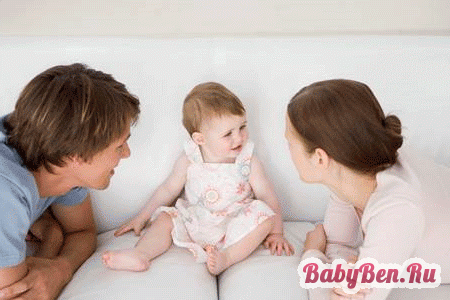
The receiving child is the appearance of a small long-awaited miracle in your family, who, alas, biological parents, you are not. This step is very responsible and incredibly serious. And to make it, you need a mutual solution of both parents.

The content of the article
Decide for adoption or not?
Nowadays, this is a frequent case when the child is adopted. But you need to understand that the adoptive parents will have many questions regarding the upbringing of "acceptance", and they need to be ready for them, so that they have not turned into problems. Therefore, many couples do not cope with the duties of their parents, and because of this refuse to adopted children. So that this does not happen, we need:
- psychological training;
- acquaintance with the child;
- health survey.
It is advisable to take a young couple in his family of a receptional child who has not reached the age of 1 year. Since both spouses have no parental experience, they can start everything from scratch. While the child is not adapted to the life principles, parents can invest their deposits into it. True, not every receiving mom is ready to survive all the nuances of parenting infants (sleepless nights, the first teeth, intestinal colic, etc.) and encounter small troubles that could be in pregnancy or childbirth.
If the age of the receiving child is up to three years, other nuances appear. At that age, the baby already has its own idea of \u200b\u200blife, habits, tastes appear. It will be necessary to agree with them or gradually teach it to others.
Fixed children aged from three to seven are an already formed personality with their interests, problems that are often caused by the unfavorable memoirs of the past life and a disadvantage of parental love. A receiving child at the age of 10 years practically does not require much care. At this age, children need attention and love of their parents. If they do not have enough, they begin to show their own character with the best qualities. Adoptive parents are very hard to adapt to such behavior, they are lost from hopelessness. But if you apply kindness and affection, this union will entail happiness.

Features of the adoptive child
If you are finally and resolutely tuned for adoption, you still do not need to rush hard. It is worth talking with teachers, medical workers, see how a child behaves with his peers and how they relate to it. Know that there are no road. Favorite children are not a thing that can be returned to the store, they have a psyche and so crossed.
After you arrive home, you all need adaptation to new life conditions. After all, first each of you will give all your not waste love and attention to each other. The child will be very joyful, happy and active, because he gained mom and dad.
Adaptation of the adoptive child
The first time everything happens is enough smoothly: the parents are afraid to refuse something, something is not given to the child, and he, in turn, is trying very much. But full adaptation will begin after addiction, and can proceed in different ways. The child can sharply become naughty, aggressive, so it is necessary to immediately make a remark, without leaving his bad behavior without attention.
Do not use an increased tone. Remember that such children brought up strictly, the comments did sharply and most often cry. It is necessary, looking into the eyes, to say a clear, even voice wish, and believe me, this method will be much more effective than the cry. And of course, show and tell on a personal example, how to behave in one way or another. With this behavior, you will become a reliable friend for the receiving kid.

Possible problems
Do not leave a child unattended in public places. From a lack of attention, he will easily go to contact with any strangers. Be vigilant, do not leave it - he can easily be lost.
There is another problem with potentially dangerous items. Reception children often climb where they should not. Parents must constantly explain the baby that can be taken, and what is dangerous for his life. Provide your child safety in his new home.
